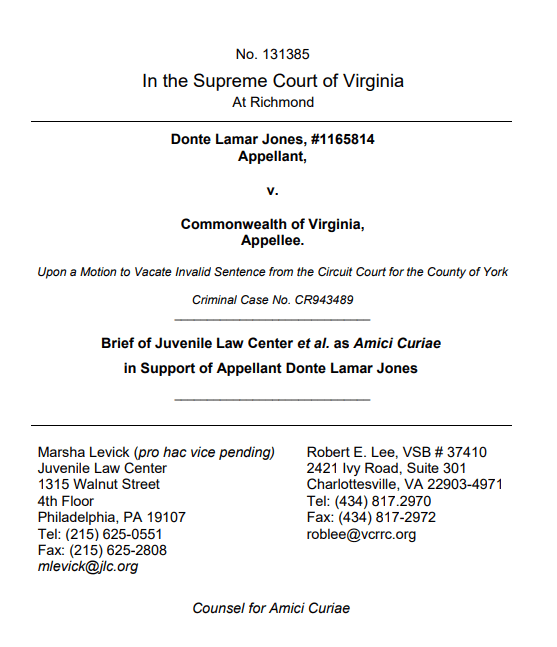
Summary of Argument
In Miller v. Alabama, 132 S. Ct. 2455 (2012), the United States Supreme Court held that the mandatory imposition of life without parole sentences on juvenile offenders is unconstitutional. Instead, Miller requires that a sentencer make an individualized determination of the juvenile’s level of culpability, taking into account the unique characteristics associated with his young age. When Appellant Donte Lamar Jones was convicted of murder for offenses he committed as a juvenile, he received a mandatory life without parole sentence which, pursuant to Miller, is unconstitutional.
Miller applies retroactively to Appellant Jones and to other cases that have become final after the expiration of the period for direct review. First, the United States Supreme Court has already applied Miller retroactively by affording relief in Kuntrell Jackson’s case, which was before the Court on collateral review. Second, Miller announced a substantive rule, which pursuant to Supreme Court precedent applies retroactively. Third, Miller is a watershed rule of criminal procedure that applies retroactively. Fourth, Miller must be applied retroactively because, once the Court determines that a punishment is cruel and unusual when imposed on a child, any continuing imposition of that sentence is itself a violation of the Eighth Amendment; an arbitrary date on the calendar cannot deem a sentence constitutional which the United States Supreme Court has now declared cruel and unusual punishment. Finally, Appellant’s interest in receiving a constitutional sentence far outweighs the Commonwealth’s interest in finality.